One of the most underappreciated treasures of the movies is Greta Gerwig. Despite having starred in Whit Stillman’s Damsels in Distress (2012) and two Noah Baumbach films — Frances Ha (2012) and Mistress America (2015), both of which she co-wrote with Baumbach — Gerwig seems not to have been wooed much by mainstream Hollywood. That may be her own choice — forays into the mainstream like Arthur (2011) have not paid off — but I suspect it has much to do with Hollywood not knowing what to do with her. She’s hardly your typical movie star. (That’s a compliment.) She has this incredible knack of being ungainly and graceful, and natural and affected at the same time. She is unique, and Hollywood is never comfortable with that. Thank goodness for movies like Rebecca Miller’s Maggie’s Plan. It may be a minor treat, but it is a treat and a terrific showcase for Gerwig — and what it affords Ethan Hawke and Julianne Moore ain’t bad either.
Maggie’s Plan is a little on the New York indie-com basic side — something that’s exacerbated by Michael Rohatyn’s often annoying musical score — and it hews pretty closely to the conventions of what that means. It even includes Maggie (Ms. Gerwig) having quirky best friends (Bill Hader and Maya Rudolph). The story itself about Maggie deciding to have herself artificially inseminated is hardly groundbreaking, but it’s a workable starting point. Though her choice of a socially awkward, uncharming artisanal pickle maker (and school math whiz) from Brooklyn, Guy (Travis Fimmel), doesn’t sit well with Tony (Hader) for the reasons stated, Maggie barges ahead with her plan. Barging ahead is in her nature.
The problem is that right before the event Maggie meets (a “meet cute,” naturally) and falls for married (of course) professor John (an uncommonly likable Ethan Hawke), who — because he’s the movie idea of a New York academic — has an unfinished novel he’d like her to read the first chapter of. John showing up at her door right after she’s inseminated herself is a masterpiece of bad timing. (It does, however, provide Gerwig with the best physical comedy gag in the film.) It isn’t long before John has left his forbiddingly intellectual (and more successful) wife, Georgette (Julianne Moore sporting a supposedly Danish accent and an array of provocative clothes), and two children behind for life with Maggie.
Needless to say, things do not go according to plan — neither Maggie’s, nor anyone else’s. After three years — and a child of their own — bliss with Maggie isn’t entirely blissful for either of them. This, of course, is what drives the rest of the film, as Maggie’s plan could be said to become pluralized. While a case could be made that Miller has deliberately set up a standard romantic comedy only to subvert it, that case isn’t entirely convincing, and isn’t all that original either. What is unusual and noteworthy about it is the level of self-awareness (and attendant blind spots) of these unusually intelligent characters. All of them think they have things more under control than they do, and that in itself makes them more likably human.
By the time Maggie’s Plan gets to its ending — which may or may not have anything to do with Maggie’s machinations — even supporting character Tony is allowed a moment of introspection, noting that one day Maggie will turn Felicia (Maya Rudolph) and him into characters in a book “and we won’t look good.” That also clues us in on the distinct probability that Maggie will find a way to continue “controlling” things, even if it’s on paper. Whether or not that makes the practice any safer is left to a future that we don’t see.
While it would be a mistake to go into this thinking it’s any kind of great film — though it is a great vehicle for Gerwig — I have to say that it has stayed with me in a surprising way. That makes me suspect I will come to value it more with the passage of time. We’ll see how that goes, but it’s certainly a little movie worth your time and attention. Rated R for language and some sexuality.



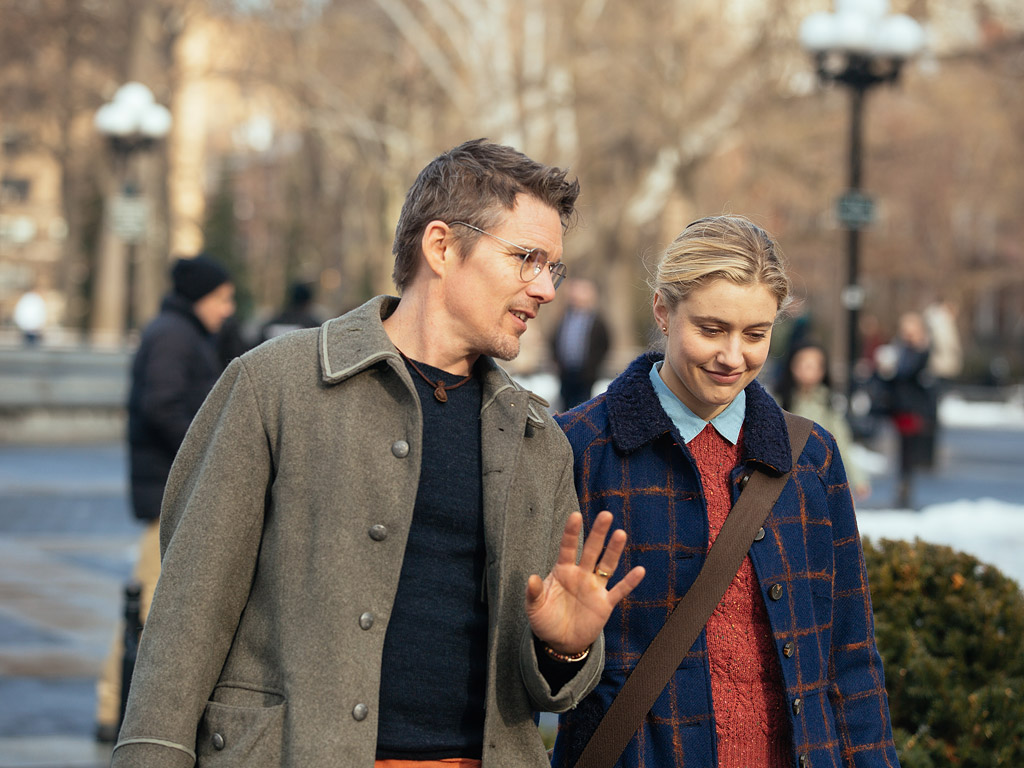

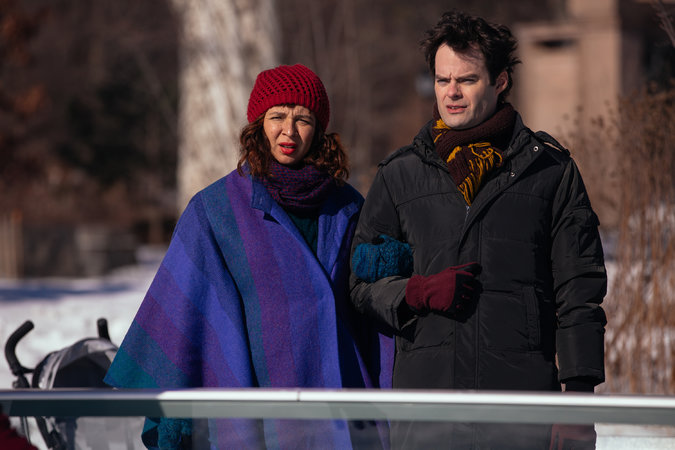
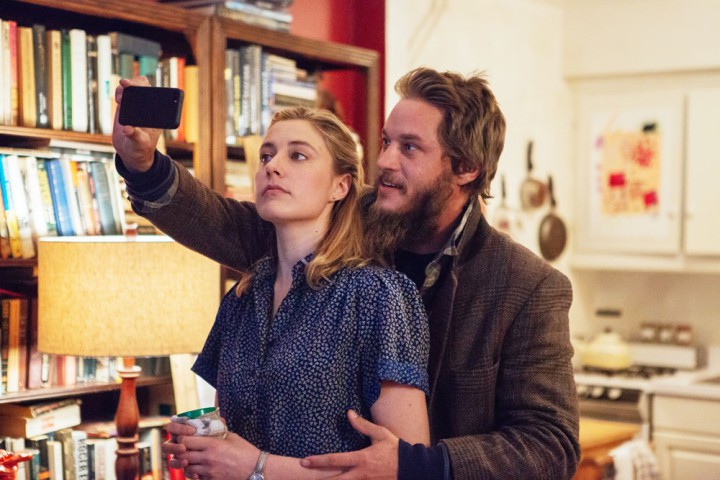
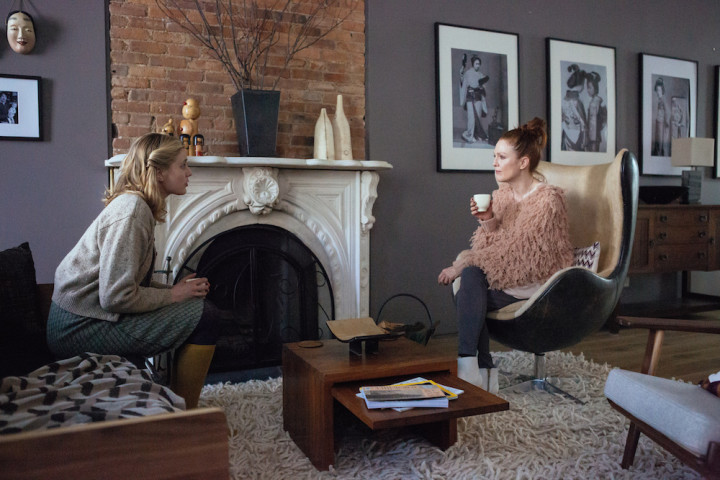
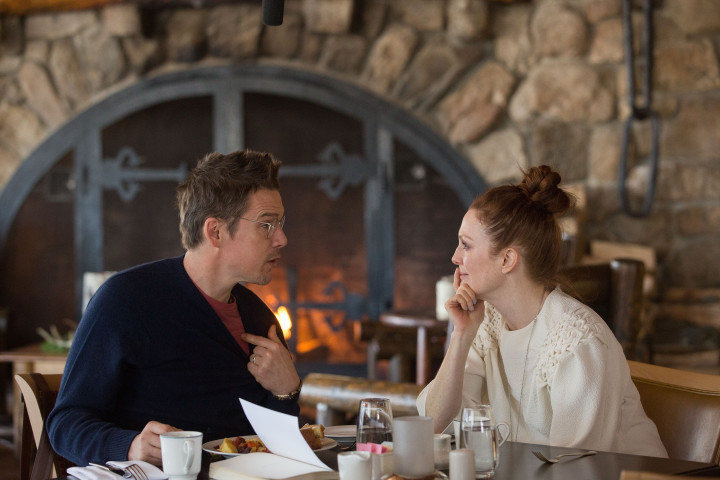

Despite being a fan of Gerwig and having enjoyed all three of her films, your review just did not stir any desire in me to see this film. This is not a criticism of your review, just that the overall description of the plot was underwhelming. But as the shadows stretched across the lawn on Friday evening, I was feeling a bit low and my plans to see “The Lobster” were not helping. I happened to pull up a trailer for “Maggie’s Plan” (which for some reason had not been shown at the Carolina last week when I went to see “Love and Friendship”) and I was enthralled. This film was a step above a “minor treat” for me. It cured my ills.
I also could not help but notice a curious parallel. Having just seen the preview for Woody Allen’s latest, “Cafe Society”, I was thinking about Allen’s most recent films and how so many young actors “become” Allen, i.e. the observant, reflective nebbish. Jesse Eisenberg is the current placeholder, but performances by Owen Wilson and Larry David (yes, he is not younger, but he is certainly current) come to mind.
Then I recalled your comment about Gerwig’s “incredible knack of being ungainly and graceful, and natural and affected at the same time.” It seems to me that this is a variant of what Allen and his thespian avatars were doing. Is Gerwig this generation’s Woody Allen? And what would a Woody Allen vehicle starring Great Gerwig be like?
Actually, she was in To Rome with Love.
But that was an ensemble piece. I mean what if she was the central character, the she-nebbish?
I’ll concede that, but I don’t agree much with your central premise. I don’t find the Allen nebbish to be “graceful” in any meaningful way. Nor, for that matter, do I see Allen in Larry David’s performance in Whatever Works (which was written for Zero Mostel). I would concede Owen Wilson, Jesse Eisenberg, and, for that matter, Jason Biggs. Also (unsuccesfully) Will Ferrell. Of course, Mia Farrow spent her whole Allen career being a female Allen — in the comedies. Ever seen A Countess from Hong Kong (1962)? In that, Charles Chaplin directs both Marlon Brando and Sophia Loren to perform as he would. The results are…uneven.
Is Gerwig this generation’s Woody Allen? As far as females go I thought people considered Lena Dunham this. Males I would go with Louis CK.
I would go with neither of those choices. I wish Dunham would just go away.
I’m fine with Dunham I can stand her to a point, Louis just has more of a similar career, he’s not really a guy that could step into the Woody Allen fill in role.
Gerwig has done a hell of a lot more than three films, she had a whole career in mumblecore before she got more high profile roles.
I forgive her for the mumblecore. Anyway, I was talking about movies that might actually draw Hollywood’s attention. There is a difference.